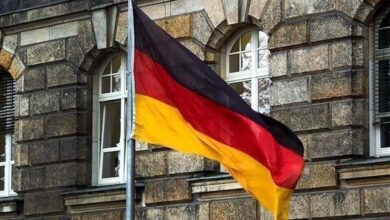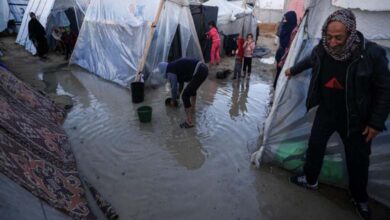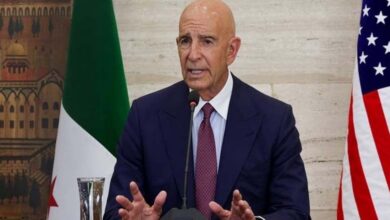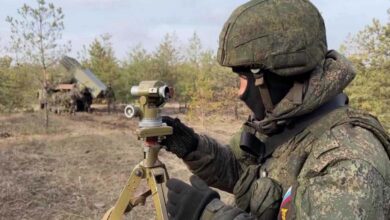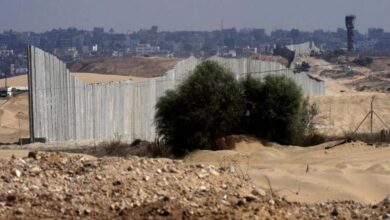Iranian-Houthi Meeting: Tehran Prepares Its Response to the ‘Expected’ Israeli Attack
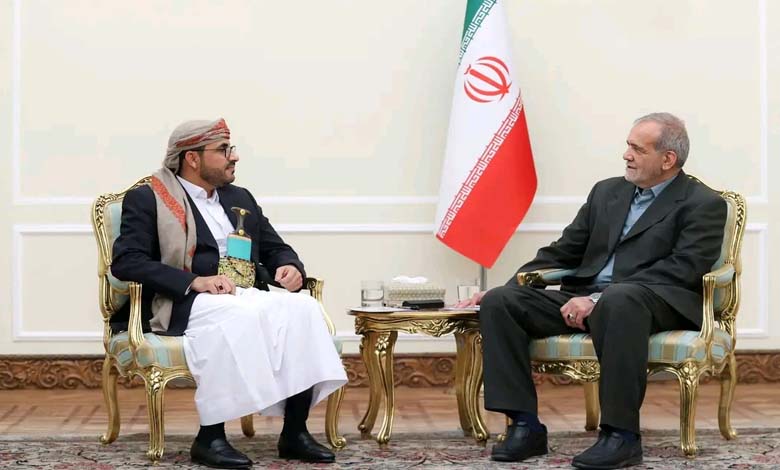
It seems that Iran is exploring how to use its external proxies to respond to any potential Israeli attack.
Iranian Foreign Minister Abbas Araghtchi met on Monday with the spokesperson for the Houthi militias, Mohammed Abdulsalam, at the Iranian embassy in Muscat.
-
Houthis Don’t Make Their Own Decisions… Iran Launches Attacks and Attributes Them to Houthis… A Senior Official Reveals the Truth
-
Growing concerns about the Houthis turning Yemen into a battleground for Iran’s wars… Details
The official Iranian news agency, Fars, merely mentioned that the meeting discussed “the ongoing developments in the region and Zionist crimes,” while Houthi-affiliated media confirmed the meeting but provided no further details.
The meeting takes place amid regional tensions over the anticipated Israeli response to Iran’s missile attack on Israel with hundreds of rockets on October 1.
Since that attack, Tel Aviv has threatened a harsh retaliation against Tehran, with Iranian fears that Israel’s response could target vital interests like oil facilities or key sites of Iran’s nuclear program.
-
The Houthis’ Catastrophe Enters Its Second Decade: A Fireball Burning Yemen
-
Sinwar and the Houthis: An Alliance in a “Battle of Attrition and Existence”
In addition, Tehran’s regional project recently suffered a major blow, as Hezbollah in Lebanon — the spearhead of this project — faced severe losses with Israel’s elimination of its top leadership and infiltration of its communications network.
The situation is no better for Iran’s other proxies in the region, which have been facing Israeli and American airstrikes in Syria, Iraq, and Yemen for months. These strikes are expected to intensify in the coming period, especially against the Houthis, who have been launching missile and drone attacks against Israel and commercial ships in the Red Sea and Bab al-Mandeb Strait since last November.
-
Terrorism: A Product of the Muslim Brotherhood and the Houthis… Yemenis React to Major Massacres in the South
-
Terrorism: A Product of the Muslim Brotherhood and Houthis… Yemenis React to Large-Scale Massacres in the South
The Timing Mystery
Observers believe that all this is pushing Tehran to try to gather its cards and tools in the region, in anticipation of the potential Israeli retaliation, which enjoys U.S. and Western support. This is reflected in the recent visits of Iranian Foreign Minister Abbas Araghtchi following Iran’s missile attack on Israel.
Araghtchi visited Syria, Lebanon, Iraq, and finally Muscat, where he met with the spokesperson for the Houthi militias. The Houthis currently emerge as one of Iran’s main options in the region to face Israeli anger and pressure the West to preserve Tehran’s interests and regional project.
-
The Houthis have established over 400 prisons since their invasion of Sanaa
-
New U.S. Sanctions Targeting Yemeni Houthis and Lebanese Hezbollah
A Defined Role
Yemeni political analyst Khaled Baqlan said that the meeting between Iranian Foreign Minister Araghtchi and Mohammed Abdulsalam in Muscat is related to the anticipated Israeli strike on Tehran.
He added that “Tehran is trying through this meeting to send messages to the U.S. to press Israel to moderate its response. Through this meeting, Iran is saying that if the strike is severe, it will retaliate through the Houthis against neighboring countries and target U.S. interests in the region.”
-
The Brotherhood Strengthens Its Relationship with the Houthis… What’s New?
-
The Houthis and Somali al- Shabaab: “The Devil’s Alliance” Reaches the Horn of Africa
He continued, “The Houthis are part of the Iranian regime’s doctrine and ideology, represented by the Revolutionary Guards, who are linked to Supreme Leader Ali Khamenei.” He also noted that Tehran sees the Houthis as a tool to achieve its strategic objectives, particularly concerning its nuclear program and the unrestricted flow of its oil into global markets.
A Cheap Shield
Yemeni journalist Ammar Ali Ahmed said the most recent attack by the Houthi militias on commercial ships occurred last Thursday when they announced an attack on an oil tanker in the Red Sea with 11 ballistic missiles and two drones, claiming it was “directly and severely hit.”
-
In a surprising decision, the Houthis threaten to target Saudi Arabia
-
Houthis and Muslim Brotherhood fail Muscat negotiations… Latest developments
The Yemeni journalist stated that “the Houthis’ insistence on sinking the oil tanker shows Iran’s desire to send a message of threat to the West by disrupting maritime oil transportation in the region, in retaliation for any possible Israeli strike on its oil facilities.”
He added that Tehran views the Houthi militias as a low-cost option for revenge against its foes, given the strategic position controlled by the Houthis in Yemen, overseeing important waterways and geographically close to major oil and gas fields.




